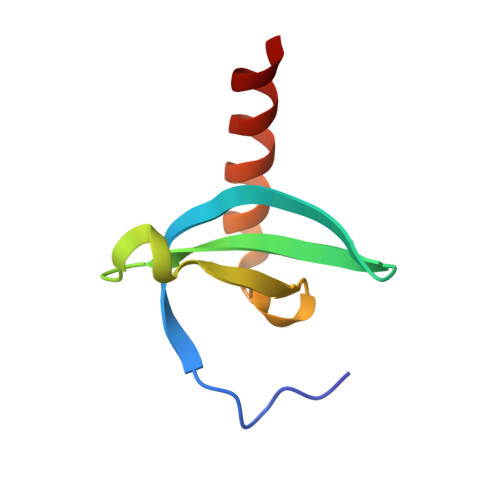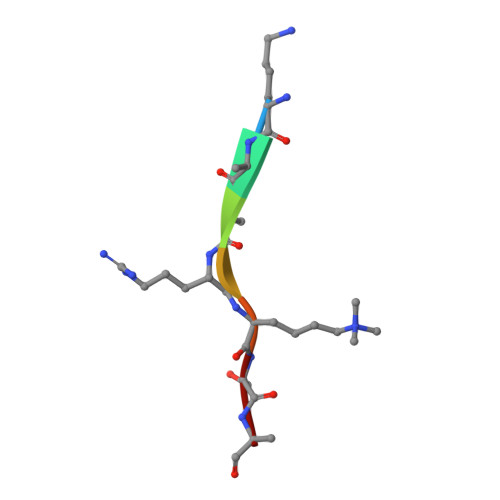Small-Molecule Modulators of Methyl-Lysine Binding for the CBX7 Chromodomain.
Ren, C., Morohashi, K., Plotnikov, A.N., Jakoncic, J., Smith, S.G., Li, J., Zeng, L., Rodriguez, Y., Stojanoff, V., Walsh, M., Zhou, M.M.(2015) Chem Biol 22: 161-168
- PubMed: 25660273
- DOI: https://doi.org/10.1016/j.chembiol.2014.11.021
- Primary Citation of Related Structures:
4X3K, 4X3S, 4X3T, 4X3U - PubMed Abstract:
Chromobox homolog 7 (CBX7) plays an important role in gene transcription in a wide array of cellular processes, ranging from stem cell self-renewal and differentiation to tumor progression. CBX7 functions through its N-terminal chromodomain (ChD), which recognizes trimethylated lysine 27 of histone 3 (H3K27me3), a conserved epigenetic mark that signifies gene transcriptional repression. In this study, we report the discovery of small molecules that inhibit CBX7ChD binding to H3K27me3. Our crystal structures reveal the binding modes of these molecules that compete against H3K27me3 binding through interactions with key residues in the methyl-lysine binding pocket of CBX7ChD. We further show that a lead compound, MS37452, derepresses transcription of Polycomb repressive complex target gene p16/CDKN2A by displacing CBX7 binding to the INK4A/ARF locus in prostate cancer cells. These small molecules have the potential to be developed into high-potency chemical modulators that target CBX7 functions in gene transcription in different disease pathways.
Organizational Affiliation:
Department of Structural and Chemical Biology, Icahn School of Medicine at Mount Sinai, 1425 Madison Avenue, New York, NY 10029, USA.


















